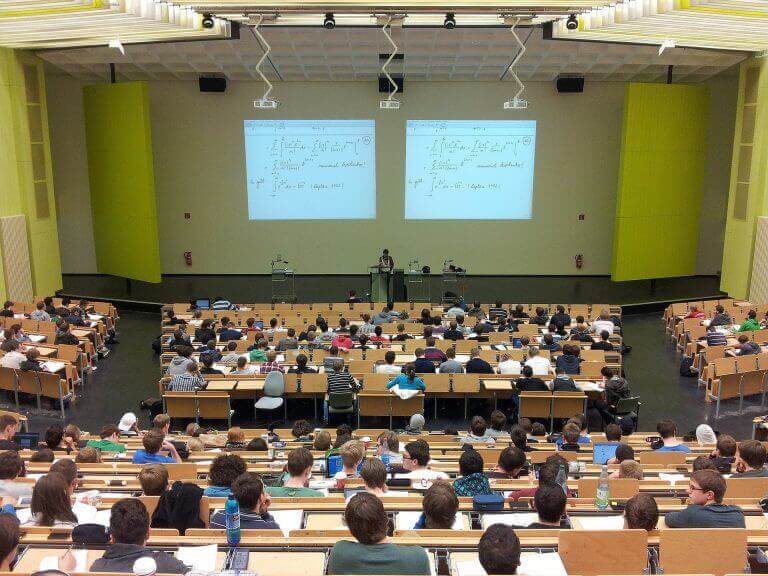American Universities have always been proud to welcome global students into their community, but with reports of foreign agents from Russia entering these school as professors and students, it is difficult to determine the reliability of this practice. These alleged spies are under suspicion for using the academic system to get close to current and future influential figures in the United States and gain certain benefits in the process, such as information to report back to those who recruited them.
While there are a number of ways to gain access to the plethora of information available in the United States, many have discovered that the least risky access to it is through the lax academic system. Professors and students are often viewed to have the most potential to rise up in the world as future politicians and researchers, and so the Russians seem to view academia as a safe way to make connections and be where they need to in order to please those they are working for by delivering relevant information.
One example of this situation comes from Columbia Business School, where a student by the name of Cynthia Murphy was discovered to be a Russian woman by the name of Lydia Guryeva. Guryeva seamlessly integrated herself into a key fundraiser for the 2008 presidential campaign in support of Hillary Clinton.
According to the FBI in 2010, Guryeva was assigned a mission to “strengthen…ties w. classmates on daily basis incl. professors who can help in job search and who will have (or already have) access to secret info” and to report “on their detailed personal data and character traits w. preliminary conclusions about their potential (vulnerability) to be recruited by Service.”
Guryeva was not the first to be uncovered as a labeled spy for Russia. On the east coast, Maria Butina received a master’s degree from American University in Washington D.C. Butina was able to make use of her time by forming connections within the National Rifle Association and was reported as consistently looking for a way to gain access to political figures such as Scott Walker and Donald Trump. Shortly after Clinton requested that Trump concede defeat, Butina sent a Twitter message stating “I am ready for further orders” to a Russian official.
While Butina is pleading innocent to these acts of conspiring as a foreign agent, if she is proven guilty she will become only another addition to the list of those who used universities to spy and gain access to U.S. information, along with Guryeva.
Another case of possible espionage within the university system was in 2013 when the FBI was able to get on record that two Russians spies, Igor Sporyshev and Victor Pobodnyy, were making efforts to recruit women who had ties to New York University.
Pobodnyy supposedly succeeded when he met Carter Page while mining a symposium on energy and pretending to be a diplomatic attache. After the meeting, Pobodnyy received documents from Page in reference to the energy business. Page later became a foreign policy adviser for Trump’s campaign and was even chosen to give a speech at a Moscow university followed by exchanging pleasantries with the Russian deputy prime minister. That being said Page denied doing anything in the wrong.
These such cases are not strictly exclusive to the U.S. academic system either. This has become a global situation as proven by the case of Joseph Mifsud, a professor at the University of East Anglia as well as the University of Stirling in Scotland. He was also an honorary director of the London Academy of Diplomacy. In 2016, Mifsud was reportedly contacting George Papadopoulos, another foreign policy Trump campaign advisor, to inform him that Russia has “dirt” in the form of thousands of emails on Hillary Clinton, the other candidate at the time.
Papadopoulos pleaded guilty in 2017 to lying to federal agents about knowing of Mifsud’s Russian connections and meeting with him. Meanwhile, Mifsud denies all claims of being a Russian agent and even claims that he is unable to speak Russian.
The list of attempted and successful espionage goes on. It includes the case of Oleg Kalugin who was a former KGB general who entered a Columbia school of journalism and posed as a Radio Moscow correspondent and reported information back to Russia before becoming a U.S. citizen after a falling out. It also includes two Russians spies who attempted to gain the favor of a professor by inviting him to many lunches and offering bribes for his information while he secretly worked with the FBI to spy on them.
The number of these cases is something the U.S. government is very concerned about, but the universities seem hesitant to act; perhaps in fear of losing revenue from overseas. Going forward it is difficult to say what may change, and who will be the one to initiate it.
To learn more about cases like these, check out the Jeff Newman Law Whistleblower Help Center and blog!
